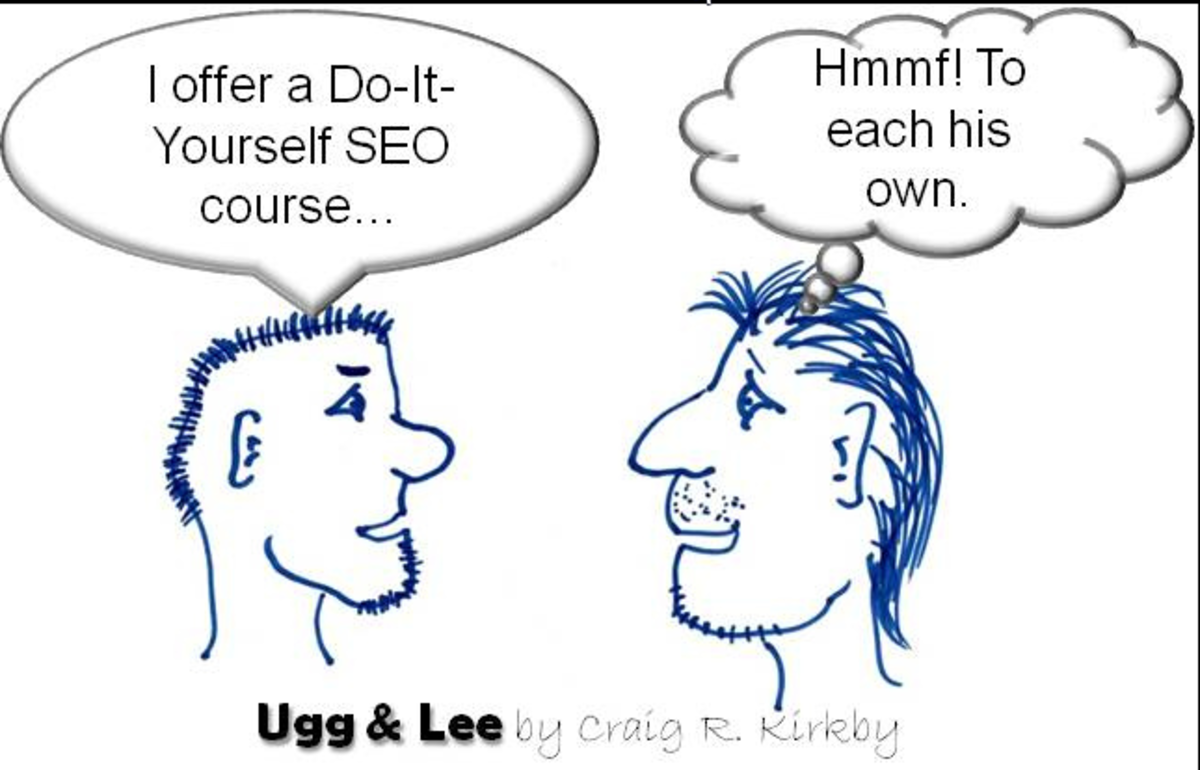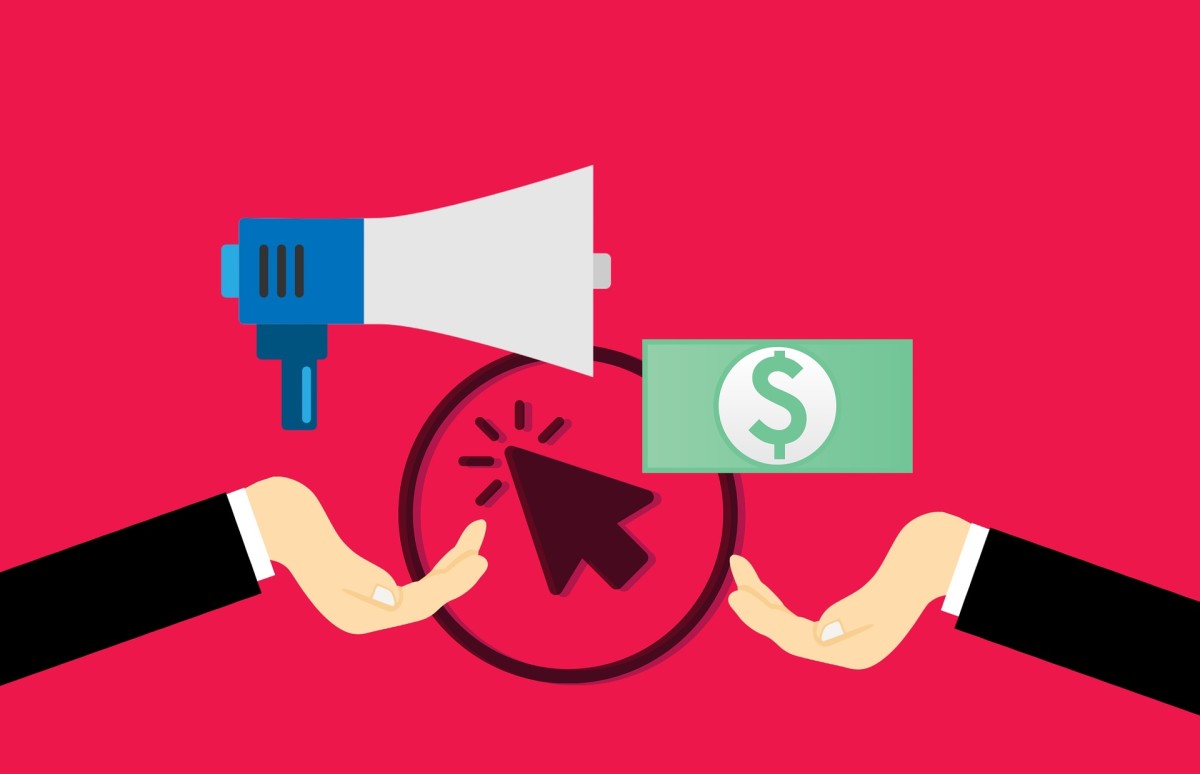- HubPages»
- Business and Employment»
- Small Businesses & Entrepreneurs»
- Marketing for Small Business
Tips To Apply Offline Marketing & Worst Things You Do Immediately After Writing SEO Content

The 5 Best SEO Tips In Internet History
How long has it been since you run your first website? Back then, there are so many SEO tips that you can implement to increase your website traffic, such as stuffing your content with keywords and make those keywords invisible in your content, maintain your keyword density, blasting links to many websites, link exchange program, and so on. Some of those tips are no longer relevant today, but some others are still very useful for today's SEO practice. In this article, youfll learn about the 5 best SEO tips in internet history. Here they are:
1. Putting Your Audience Above All Others
Your audience is everything. If you want to be successful in your SEO practice, you have to avoid neglecting your audience. Neglecting your audience can often bring bad luck to your website, which means that it can usually make your SEO strategy ineffective in the end. For instance, when you're doing SEO by overusing your keywords, your content will be difficult to read by your audience. So, even though they arrive in your content page, they wonft read your content because it is not interesting to read. Well, you just lost your readers.
2. Write Original Content Without Overusing Your Keywords
Do not use duplicate content or spun content for your SEO campaign. It doesn't matter if the experts are saying that you need to spread your content all over the web in order to raise your PR. You have to always remember this one simple rule: it is always better to use original content rather than duplicate content. It boosts your creativity, and it is good for SEO since original content has more value in the search engine. Also, when you write your content, do not overuse your keywords. Keyword density is no longer important in today's SEO setting, and you just need to place your keywords within the flow of your content.
3. Write Long, Valuable Articles With LSI Keywords In It
Long articles always outrank short articles in the field of SEO, especially if you're putting LSI keywords on your articles. In order to make your content to rank highly in the search engine, remember to make it long and valuable. Target specific keywords but donft forget to research about the LSI keywords as well. Then, you have to incorporate all those keywords to your content in a nice and natural way. The key is to write long and valuable articles with relevant keywords in it.
4. Get Social
Today's internet climate is affected heavily by social media. In other words, social media can affect your success in SEO. If you want to make your content to be ranked high in the search engine, the best way to do it is to make it viral. Make it spread on social media. It will boost your content rank very quickly. So, be sure to get social with your content.
5. Quality Links Over Quantity
If you want to add backlinks to your content, you need to put quality links. In the old days, any kind of link will help you to boost your search engine ranking, but those days are now gone. Search engines put the quality of your links into account when they decide to rank your content. So, donft think that 1000 free links can help you to get indexed quickly. You need quality links from popular, relevant, and authoritative websites in order to boost your rank in the search engine.
Now, it's the time for you to implement those tips. If you want your content to get ranked high, those tips can help you to achieve that goal.

5 Tips To Apply Offline Marketing Strategies In Your SEO Plan
How can you connect offline marketing strategy with SEO? Well, first of all, you have to understand that it's all about marketing your stuff, whether online or offline. With SEO, you either market your product or simply market your website. It's no different from offline marketing in which you're marketing your product using traditional ways. So, how can offline marketing help your SEO? Here are 5 tips to apply offline marketing strategies in your SEO plan:
1. Writing Reviews For Newspapers And Magazines
Writing review about your product for local newspaper and magazine is one of the best ways to introduce your product to your audience, while at the same time attracting their curiosity about your product. How can you apply this strategy in your SEO writing? Well, itfs simple. When you write for SEO, focus on the buying keywords, the keywords that will bring your content right in the face of your potential buyers. Give them a simple introduction about your product by telling them story that is relevant with their situation, and then go straight to your product introduction. This will help you to increase their curiosity about your product.
2. The Art Of Putting Ads On Newspaperfs Classified Ads
When you put an ad on newspaperfs classified ads section, what do you need to do in order attract as many eyeballs as possible? You have to focus on writing headline and product description that catch their attention. You can apply this strategy in your SEO plan as well. In addition to targeting various keywords, you have to create a headline that will attract peoplefs attention. It is better if you can include your keywords in your headline. Also, make sure that the first few sentences of your content can spark the motivation for your readers to read more.
3. Giving Emphasis On Branding
When you see billboard ads, you will always see that the advertisers are giving more emphasis on their product brand. Why? Thatfs because branding is important. It can build trust quickly. By putting the billboard in the area with lots of gtraffich they can achieve their marketing goal effectively. Now, how should you implement this strategy on your SEO? When you write SEO content or build backlinks for your landing page, for instance, you have to focus on branding. Build credibility first so that your audience will trust you. Also, build backlinks from credible places that will add more credibility to your website.
4. The Bullet Points
You will often see some bullet points in any offline advertising materials that you encounter anywhere. Whether itfs in the form of billboard advertising, brochures, banners, and so on, the advertisers will always include bullet points in their product promotion. Why? Thatfs because it works. Bullet points make the ads easier to read and people wonft have difficulty to understand about the productfs benefits in a short period of time. You can implement this strategy on your SEO plan. Create content that is easily scan-able for your readers. Include bullet points so that it is easier to read.
5. Giving Away Brochures And Pamphlets
Most companies will give away brochures and pamphlets to the potential customers in the neighborhood area in order to give them useful information about their product. This is one of the most popular offline marketing strategies that are being implemented over and over again by local businesses. What do you find in those brochures and pamphlets? Usually, they will give some useful information and tips about your problem and how you can solve it. In your SEO plan, it is important for you to know about your audience's problems. You are not only writing your content based on your keyword, but you should also be able to connect with your audience, inform them about their problem, and give them some tips on how to solve them. In this way, you will not just write for keywords, you're helping your audience as well.
Those are 5 tips to apply offline marketing strategies in your SEO plan. Why should you apply those strategies in your SEO plan? Thatfs because most online marketers only focus on keywords and keywords, eliminating the important element of marketing. Thatfs why they often fail to sell their product despite how well the content performs in the search engine. You should apply those tips so that you can create a balance between writing for the search engine and writing for your audience.

Do you hire people to do SEO for you or do you do it yourself?
The 5 Worst Things You Do Immediately After Writing SEO Content for Your Website
Writing SEO content is important, and it can help you to increase your website traffic significantly. But, some people are just ruining their effort in writing SEO content for their website. In fact, they do unnecessary or even bad things right after writing their content. What are those things? Here are the 5 worst things you do immediately after writing SEO content for your website:
1. Publishing Your Content Immediately
Don’t publish your content immediately. At least take some time to proofread and edit your content. Take the time to check the keyword density of your content so that you know that your content doesn’t have too many keywords in it. Also, check your content for plagiarism as well to ensure the uniqueness of your content. Publishing your content immediately without taking the time to examine and check its quality will only kill your credibility, and your readers won’t like it.
2. Spreading Your Content Like Crazy
Well, it’s good for you to spread your content so that you can attract more people to read it. But, what I mean by spreading your content like crazy is to distribute your content to many websites (usually article directories) without even letting your content to sit in your website for a while and get indexed by the search engine. If you do this, your content might be flagged as duplicate content, and you will have difficulty to rank your content well.
3. Spinning Your Content
Spinning your content can often mean plagiarizing your own content. Well, since your spun content will be considered the duplicate of your original content, then it can technically mean that spinning your content is plagiarizing your own content. This is especially true if you’re using article spinner software in which the reliability can’t be trusted. You will come up with hundreds of similar content with horrible grammar and lots of awkward sentences. What’s the purpose of spinning your content? It is practically useless for you, and it’s one of the worst things you shouldn’t do after writing your content.
4. Using Your Content To Spam Other Websites
I’m talking about some instances when you use your content to comment on related blogs in order to make your comment look more credible. This is usually done by those spam backlink builders that use commenting software. This form of spamming will only lose your SEO power and make your content to be flagged as spam. What will happen when the search engine flag your content as spam? If you do it often, your entire website will be kicked out from the search result forever.
5. Putting Spam Backlinks To Your Content
Most people immediately feel so eager to put backlinks to their content whenever they publish it. Well, this kind of practice is generally good, but not good enough if you do it wrongly. Remember that in order for your backlinks to be considered valuable, those links must come naturally. If they’re not natural, then those links are just an attempt to game the search engine into thinking that your content is valuable, while in fact it is not. You should let your content to get indexed and naturally be found by your readers. They will do the promotion for you if you really have good quality content worth sharing.
Those are 5 worst things that you can do after writing SEO content for your website. If you want to get real result from your SEO practice, be sure to avoid doing those things.









